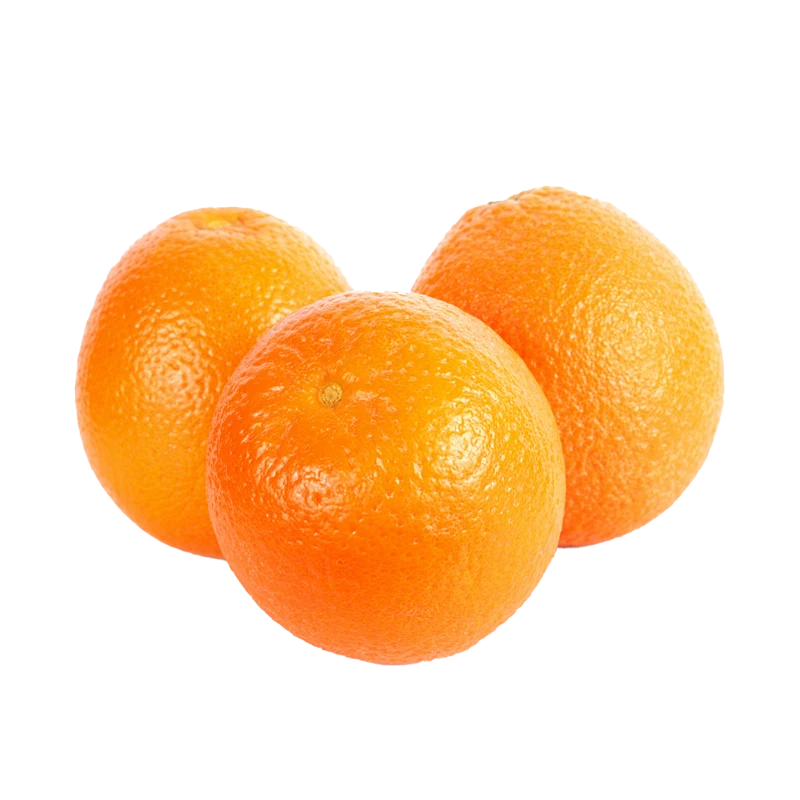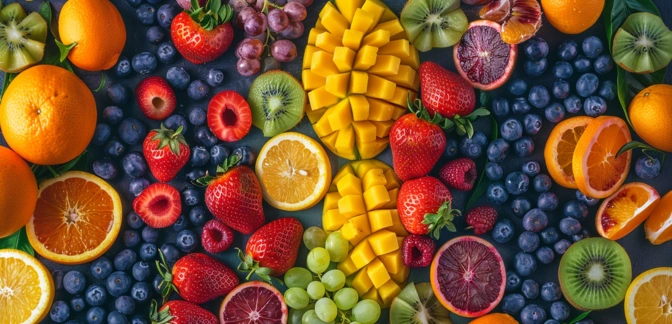Mandarins — Nutrients, Health Benefits, And Shopping Tips

Written by Listonic Team
Last update on September 4, 2024
Nutrition facts
Nutrition facts
Amount per 100 g
Calories
🔥 53 kcal
| Nutrition per: 100 g | Value | % Daily Value* |
|---|---|---|
| Carbs | 13 g | 4.73% |
| Fiber | 2 g | 7.14% |
| Sugars | 11 g | 22% |
| Glycemic Index | 42 | - |
| Protein | 1 g | 2% |
| Sodium | 2 mg | 0.09% |
| Total Fat | 0 g | - |
*The % of Daily Value (DV) tells you how much a nutrient in a serving of food contributes to a daily diet. 2,000 calories a day is used for general nutrition advice.
42
🟢 Low Glycemic Index
Did you know?
Health benefits
- High in Vitamin C, which supports immune function, skin health, and overall well-being.
- Rich in antioxidants such as flavonoids, which help protect the body from free radicals and reduce inflammation.
- Contains fiber, promoting digestive health, regular bowel movements, and a healthy gut microbiome.
- Provides essential vitamins and minerals such as Vitamin A, potassium, and folate, which support overall health and well-being.
- Low in calories, making them a nutritious option for weight management and overall health.
Health risks
- High sugar content relative to other fruits, which may cause blood sugar spikes, particularly concerning for diabetics or those on low-sugar diets.
- Potential for digestive discomfort such as bloating or diarrhea when consumed in large quantities due to their high fiber content.
- Risk of allergic reactions in some individuals, particularly those allergic to citrus fruits, causing symptoms like itching, swelling, or difficulty breathing.
- Potential for pesticide residue on conventionally grown mandarins, which can pose health risks if not properly washed or sourced from organic suppliers.
How to choose mandarins
Mandarins should be firm and heavy for their size, with a bright orange color that is uniform across the skin. The skin should be thin and cling tightly to the segments, making them easy to peel.
Do not select mandarins that are soft or have spots, as these can be signs of over-ripeness or decay. Fresh mandarins should taste sweet and juicy, bursting with a vibrant citrus flavor that is perfect for snacking.

How to store mandarins
Mandarins should be stored in the refrigerator crisper drawer to maintain their freshness. Refrigeration helps extend their shelf life up to two weeks. Ensure they are kept dry to prevent mold growth.
Storing mandarins at room temperature for too long can lead to rapid spoilage. Avoid placing them in sealed plastic bags which can trap moisture and cause mold. Instead, use a perforated bag or a fruit bowl with good air circulation.
✅ Extra Tip
How long do they last?
Mandarins can last for 1-2 weeks at room temperature and up to 3-4 weeks in the refrigerator. Proper storage in a cool, dry place helps extend their freshness.
What to do with leftovers?
Leftover mandarins can be used in a variety of sweet and tangy dishes. Segment them and add to salads with greens, nuts, and a citrus vinaigrette, or mix them into a fruit salad with other tropical fruits like pineapple and kiwi. Mandarins are also great when juiced and used in cocktails or mocktails, where their sweet-tart flavor adds a refreshing twist.
Use mandarin segments as a topping for yogurt, oatmeal, or cereal, adding a burst of flavor and color. If you have a lot of mandarins, consider making a batch of mandarin marmalade or preserves to enjoy later. Mandarins can also be used in baking, where their juice and zest can add a bright citrus flavor to cakes, muffins, or cookies. For a quick snack, peel mandarins and enjoy them on their own, or dip segments in chocolate for a sweet treat.
👨⚕️️ Medical disclaimer
Discover products from other categories
Listonic Team
Fact-checked
Our editorial team checked this article to make sure it was accurate at the time of publishing it.
Get the top-rated shopping list app

mandarins
1 piece







